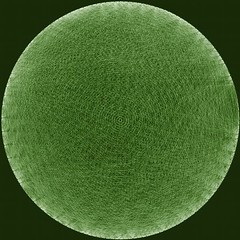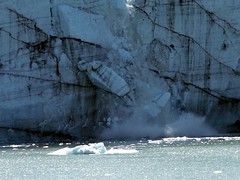This post continued from the previous...
Reference to"small-world" networks in the previous post is only part of the riddle, also posted previously (i.e. What do Kevin Bacon, Adolf Hitler, ecosystems and science education have in common?). What does all this have to do with responsible science? With particular reference to scientists who address ecosystems and environmental issues in their research, the answer can be presented in three parts. First consider that the human and natural worlds today are facing challenges unprecedented in human history. The three most significant of these challenges are:
- 1. Anthropogenically-driven global warming and climate change.
- 2. The accelerating damage to ecosystems and loss of ecosystem services, characterized most frequently by the accelerating extinction of species.
- 3. Continuing increase of the rate of global population growth, and perhaps more seriously, a continuing increase of the rate of per capita human consumption of non-renewable, or slowly renewing, natural resources.
 Second, there are deep similarities between the ways in which the parts of ecosystems function, and the small world of humans. Not only can they both be represented by networks, but the mathematics are very similar! Unfortunately, the fallout from this observation is not all good. And third, if scientists wish to really leverage our knowledge and be responsible citizens of the planet, then one place to begin is to use the power of the small world to our advantage.
Second, there are deep similarities between the ways in which the parts of ecosystems function, and the small world of humans. Not only can they both be represented by networks, but the mathematics are very similar! Unfortunately, the fallout from this observation is not all good. And third, if scientists wish to really leverage our knowledge and be responsible citizens of the planet, then one place to begin is to use the power of the small world to our advantage.
I'll explain this rather lengthy answer to the riddle in the next post, where we'll take a short trip through food webs, ecosystem collapses, and eventually the bottom-up approach to making new scientists.
